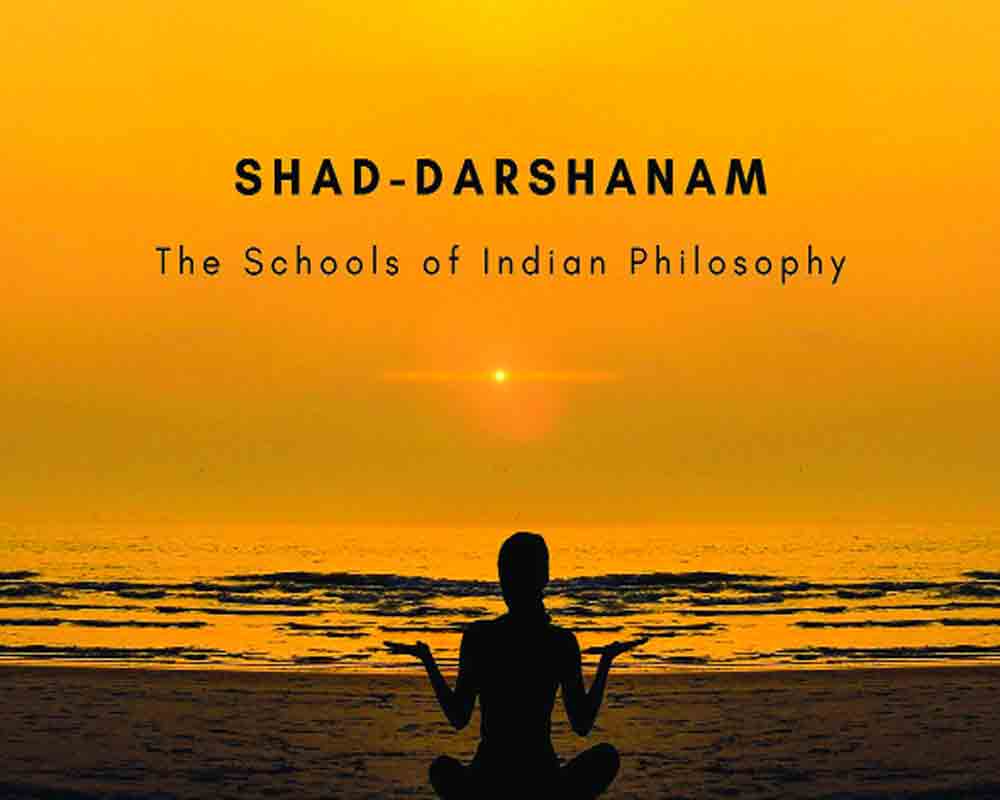‘Shad Darshan’ are six philosophical systems in Vedic and post-Vedic schools of thought
Shad Darshan, which translates to "Six Philosophies" in Sanskrit, refers to the six classical schools of Indian philosophy that have played a crucial role in shaping the intellectual and spiritual landscape of ancient and medieval India. These philosophical systems, each with its unique perspective and emphasis, provide diverse insights into the nature of reality, consciousness, and the purpose of human existence. Let's explore a brief introduction to each of the Shad Darshan schools.
Nyaya Darshan: The Science of Logic and Reasoning
Nyaya, meaning "logic" in Sanskrit, is a system that focuses on the analysis of reasoning and logic. It provides a structured approach to understanding and validating knowledge through inference, analogy, and deduction. Nyaya philosophers, known as Nyayaikas, seek to establish a systematic methodology for discerning truth and knowledge.
Vaisheshika Darshan: The Atomic Theory of Matter
Vaisheshika is a philosophical system that delves into the nature of the physical world. Founded by the sage Kanada, it explores the concept of atomism and classifies the various elements of the universe. Vaisheshika proposes that everything in the material world is composed of distinct, indivisible atoms. The philosophy also addresses the concept of karma and its role in shaping individual destinies.
Samkhya Darshan: The Enumeration of Reality
Samkhya is one of the oldest schools of Indian philosophy attributed to Sage Kapila. It focuses on enumerating the fundamental components of reality. Samkhya identifies the dualistic nature of existence, distinguishing between Purusha (consciousness) and Prakriti (matter). The philosophy aims to liberate the individual soul (purusha) from the entanglements of the material world by understanding the true nature of reality.
Yoga Darshan: The Path to Union
Yoga, popularized worldwide as a system of physical and mental practices, is deeply rooted in the philosophical framework of Yoga Darshan. Attributed to Sage Patanjali, this system outlines a path to self-realization and union with the divine. Yoga includes ethical guidelines (yamas and niyamas), physical postures (asanas), breath control (pranayama), and meditation. The ultimate goal of Yoga Darshan is to achieve a state of inner tranquillity and spiritual enlightenment.
Mimamsa Darshan: The Science of Rituals
Mimamsa, also known as Purva Mimamsa, is a school that concentrates on the interpretation of Vedic rituals and sacrificial ceremonies. The Mimamsa philosophers, called Mimamsakas, meticulously analyze the Vedas to understand the correct performance of rituals and the implications of these actions. The philosophy emphasizes the importance of adhering to Vedic injunctions for individual and societal welfare.
Vedanta Darshan: The End of Knowledge or ultimate knowledge
Vedanta, meaning "the end of the Vedas," is a philosophical system that interprets the Upanishads, the concluding part of the Vedic scriptures. Vedanta explores the nature of ultimate reality (Brahman) and the relationship between the individual soul (Atman) and the cosmic consciousness. Advaita Vedanta, one of the most influential schools within this system, teaches the non-dualistic nature of reality, asserting that the individual soul and Brahman are ultimately one.
Shad Darshan represents a rich tapestry of philosophical thought in ancient India, offering diverse perspectives on metaphysics, epistemology, ethics, and spirituality. Each school within this framework contributes unique insights, providing seekers with a comprehensive understanding of the complexities of existence and the paths to self-realization. The enduring legacy of Shad Darshan continues to inspire philosophical inquiry and spiritual exploration in contemporary times.
(The writer is a spiritual guide; views are personal)


























